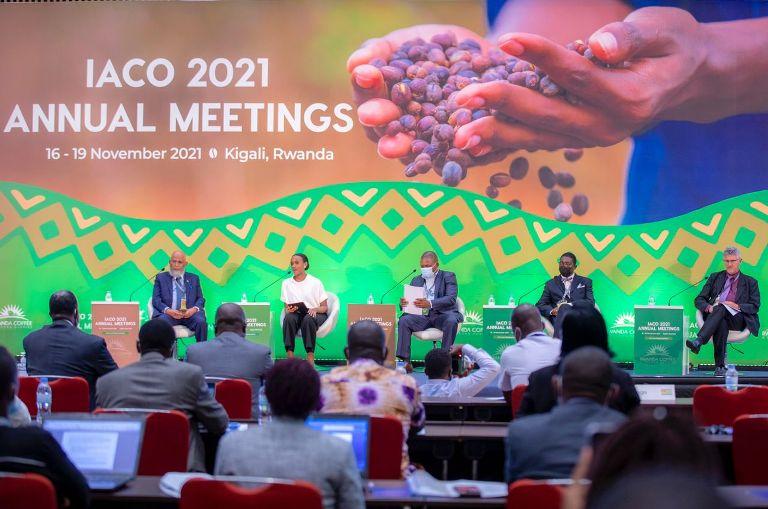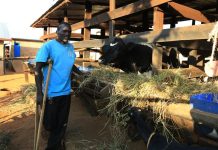Africa-Press – Rwanda. Something needs to be done to entice Rwandans to begin consuming coffee and make it a local custom. Despite the high quality coffee produced in Rwanda, local consumption is still a big puzzle to fix and this has very negative effects on farmers’ incomes and eventual livelihoods.
Hundreds of delegates have convened in Rwanda’s capital, Kigali for the annual meetings of the Inter-African Coffee Organization (IACO) from November 16th – 19th 2021. This symposium is discussing coffee value chains and strategies to increase local consumption of Coffee and boost trade.
Speaking to delegates at this forum, Dr. Jean Chrysostome Ngabitsinze Rwanda’s Minister of State in the Ministry of Agriculture and Animal Resources said, “If we have to improve our coffee farmers’ livelihoods, we have to promote the domestic consumption of coffee so they can raise their coffee farm incomes.”
In his submission, Dr.Ngabitsinze said, “the commodity of coffee is complex, so we have to find solutions of that complexity.” He told the symposium that coffee is not just a commodity, “It’s a magic tool that helps people to improve their lives socially and financially.”
He has called for increased domestic consumption to boost incomes for farmers. “What are we doing to make sure that the domestic consumption is increasing and our people (farmers) are having not just incomes but wealth?” Dr.Ngabitsinze said, highlighting different initiatives that can increase local consumption of coffee.
According to him there are about 12 million coffee producers in Africa who work up to 14 hours and would like to see domestic consumption increase to considerable levels. He said that there is a need for new strategies to up consumption.
During the forum, some speakers elaborated on the key challenges facing the coffee sector. For example Raissa Ikuzwe, the CEO of Ino coffee series (Specialty coffee) spoke of volatility of coffee prices which are adversely affecting coffee farmers.
“Price volatility in the export market impacts the coffee sector and exposes coffee producers to unnecessary risks. Therefore it is vital to commit to strategies that enable African coffee producers to obtain a higher & better share of the consumer price,” she said.
Ikuzwe said that due to price volatility, farmers also reduce investments and scale back primarily on labour, creating a downward spiral of poor production and low income and the people that suffer the most are farm workers. Raissa Ikuzwe, the CEO of Ino coffee series (Specialty coffee)
“Coffee producers invest too much of their resources in hopes that the next global market coffee price will be worthy of their efforts. When they face uncertain prices, especially prices that do not cover production costs, they minimize efforts,” said Ikuzwe.
According to her, it is critical to shift focus on value addition and domestic consumption of African coffee, “On top of the export money stream, believe me there is a big untouched market for coffee in our region that needs to be fully explored,” she noted.
She added that the marketing strategies of most African producing countries has solely focused on export. “With ongoing issues with climate change, quantity fluctuations and other factors, the coffee export price has been very sensitive to price volatility.”
The theme of this Annual General Assembly is “Strengthening the coffee value chain for sustainable development of the economy & improved living income of African producers”
For More News And Analysis About Rwanda Follow Africa-Press






